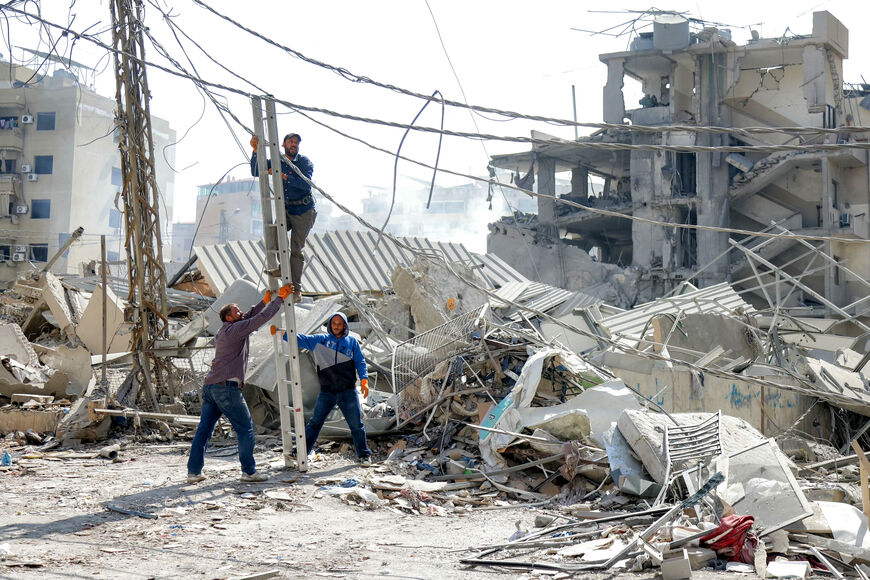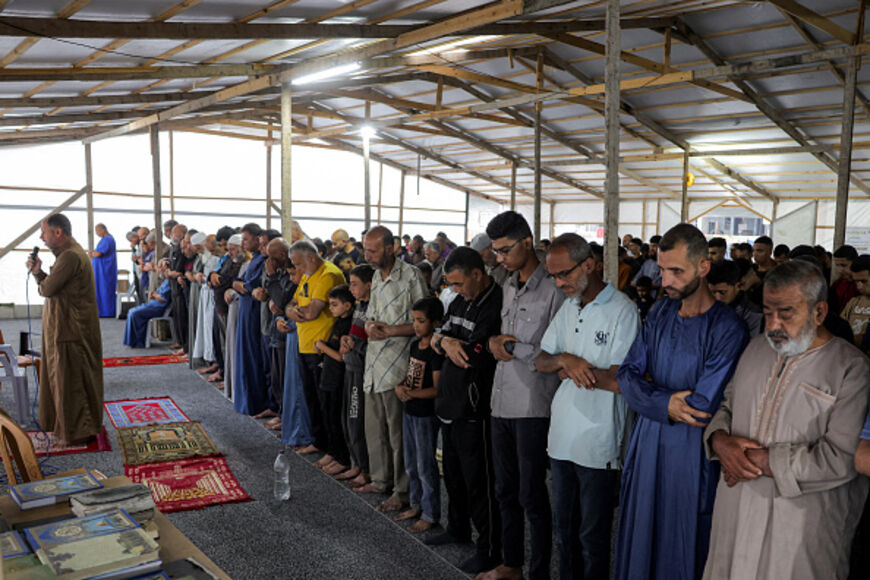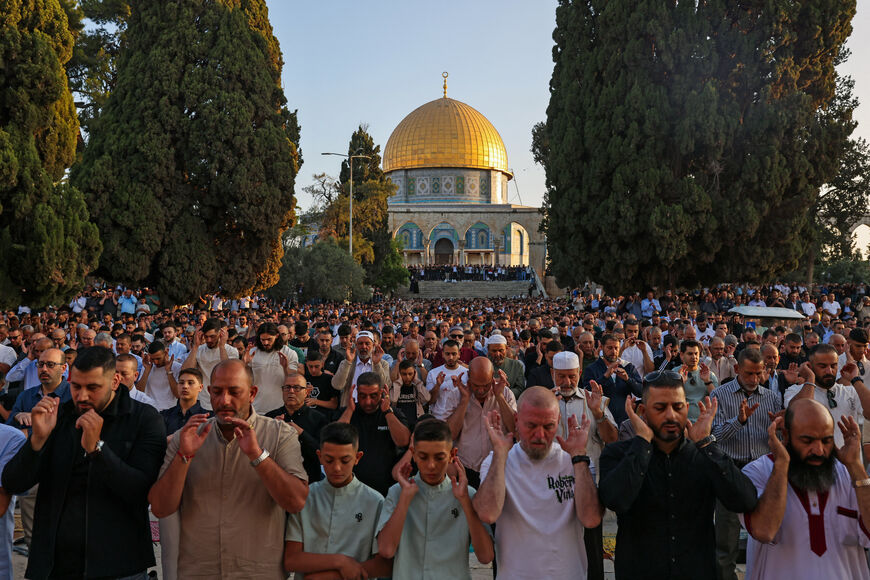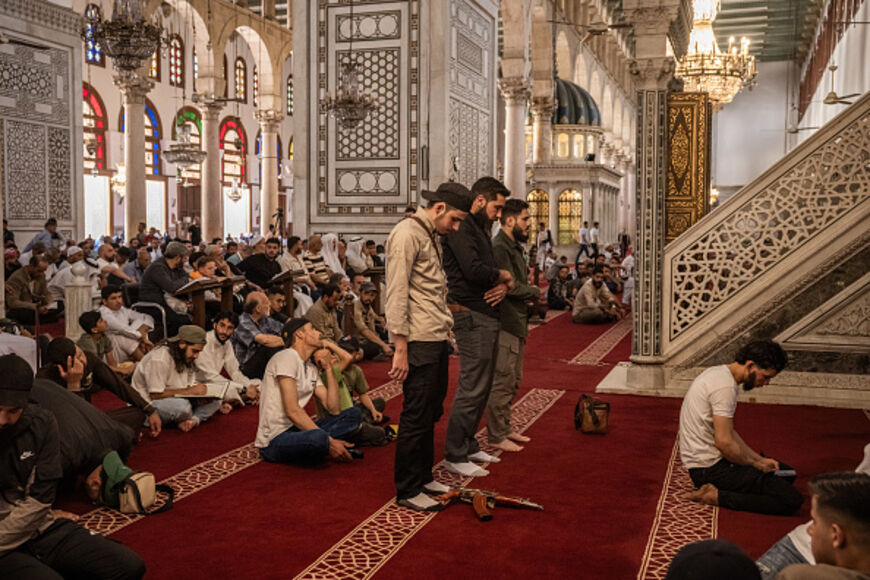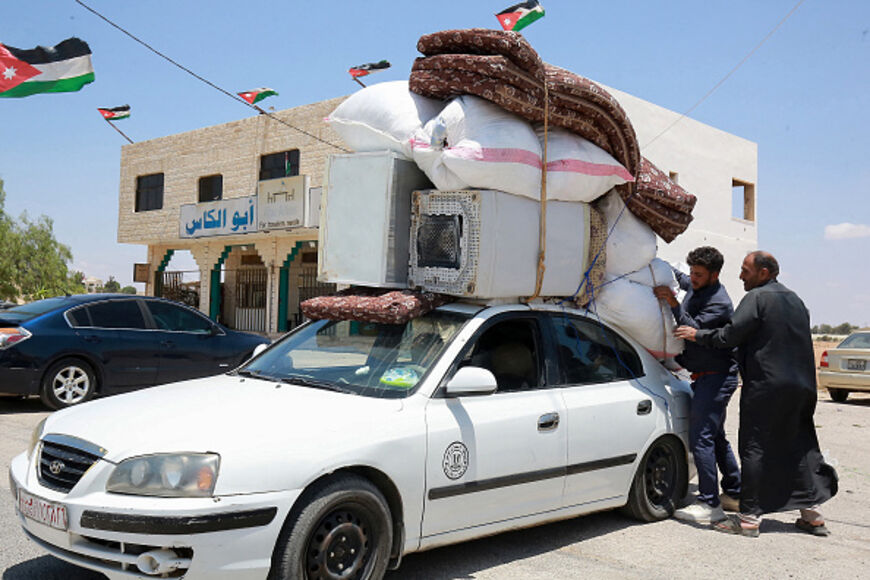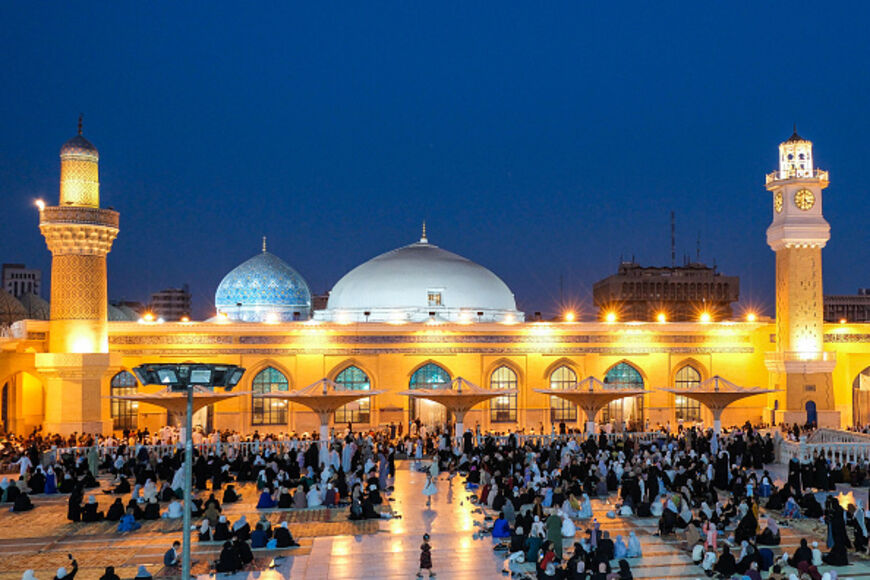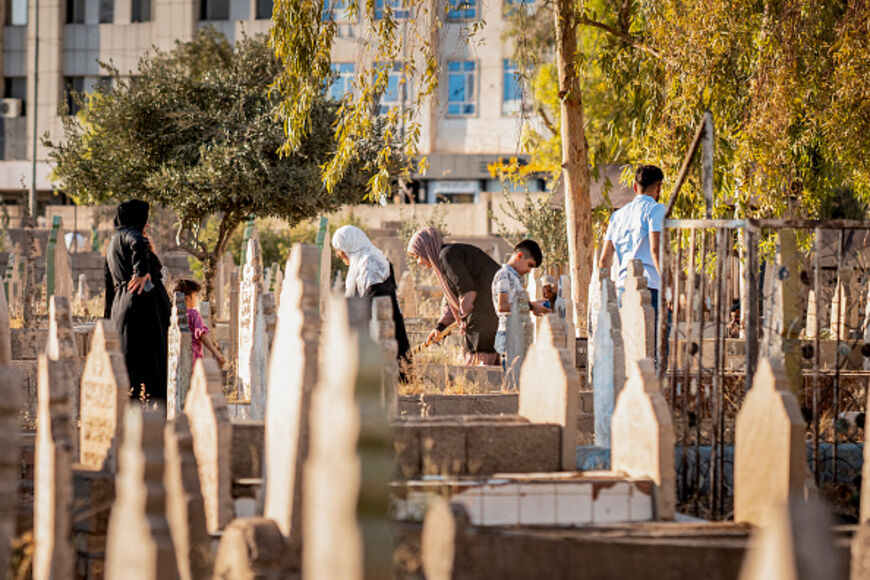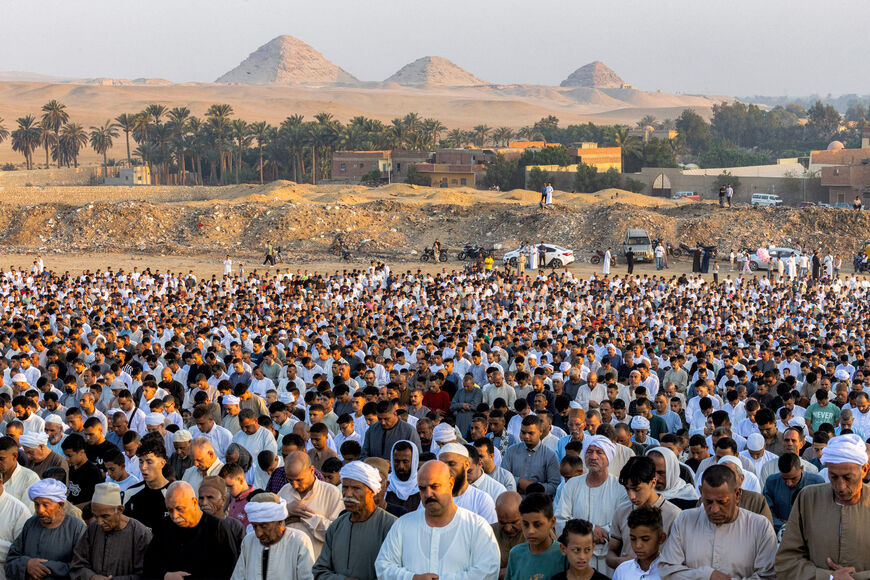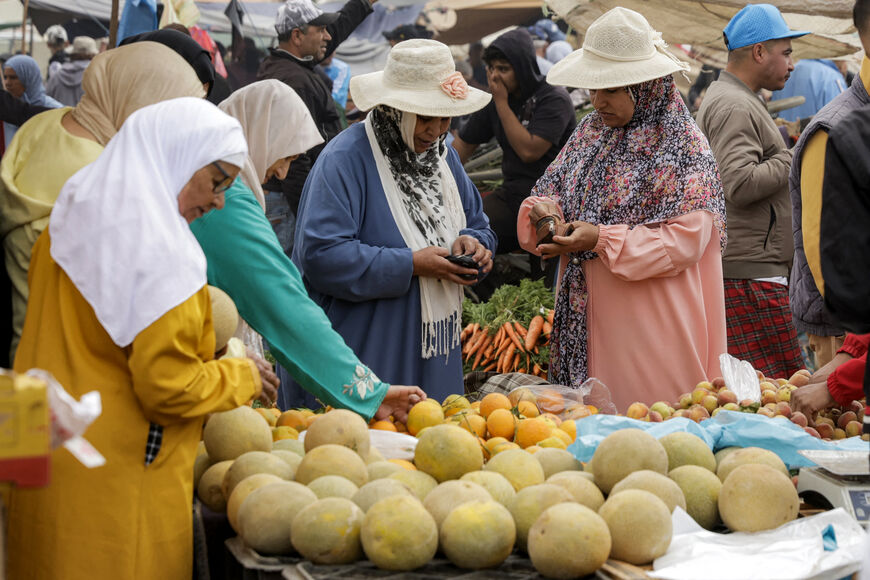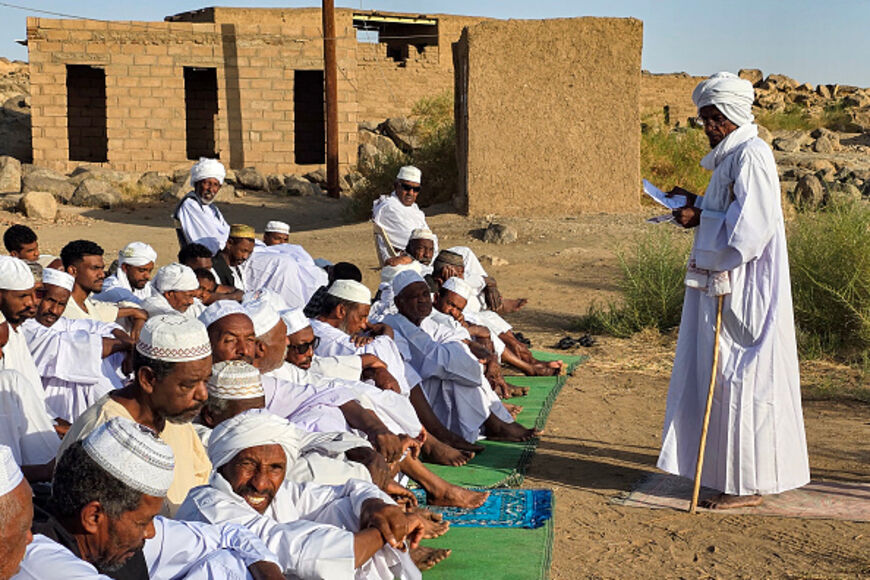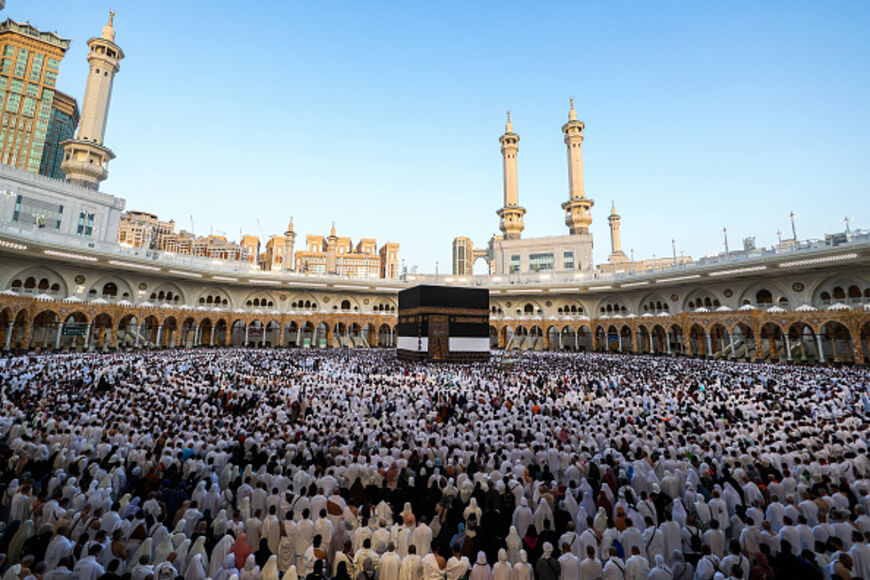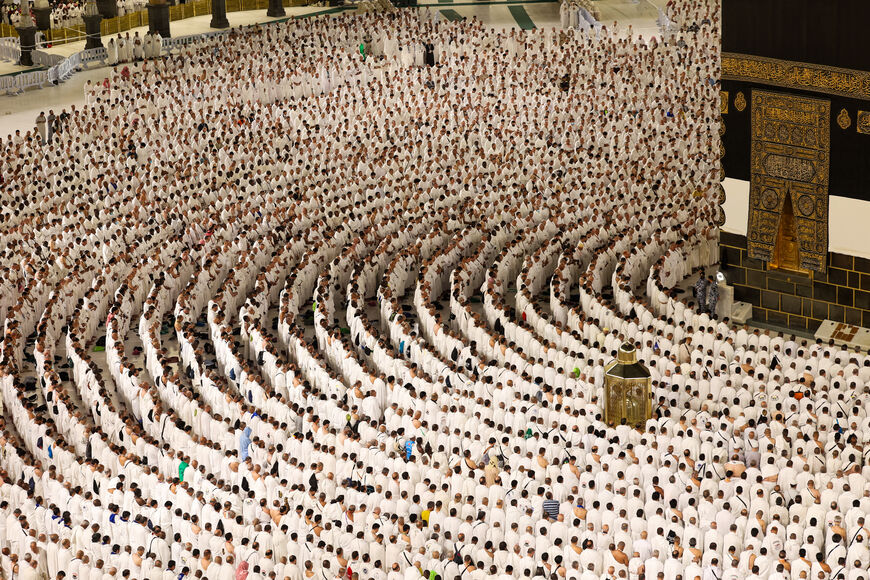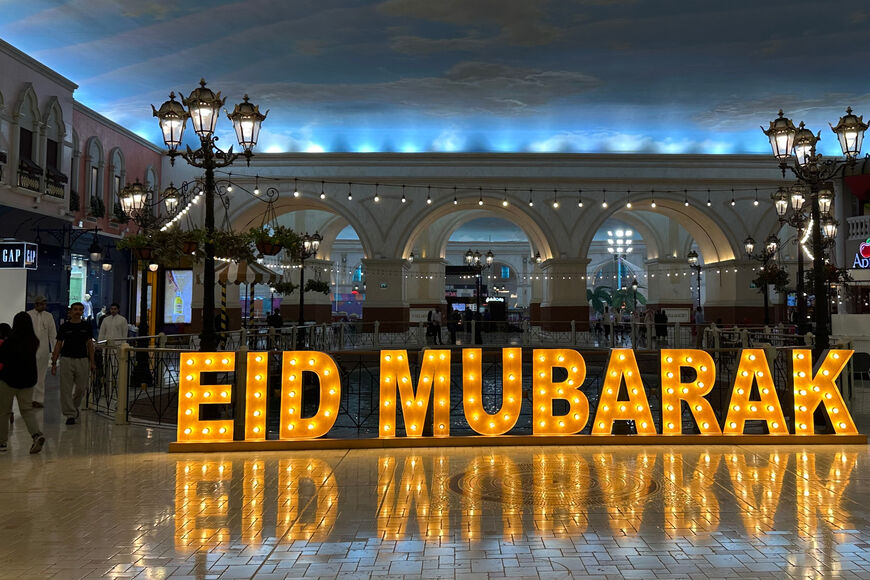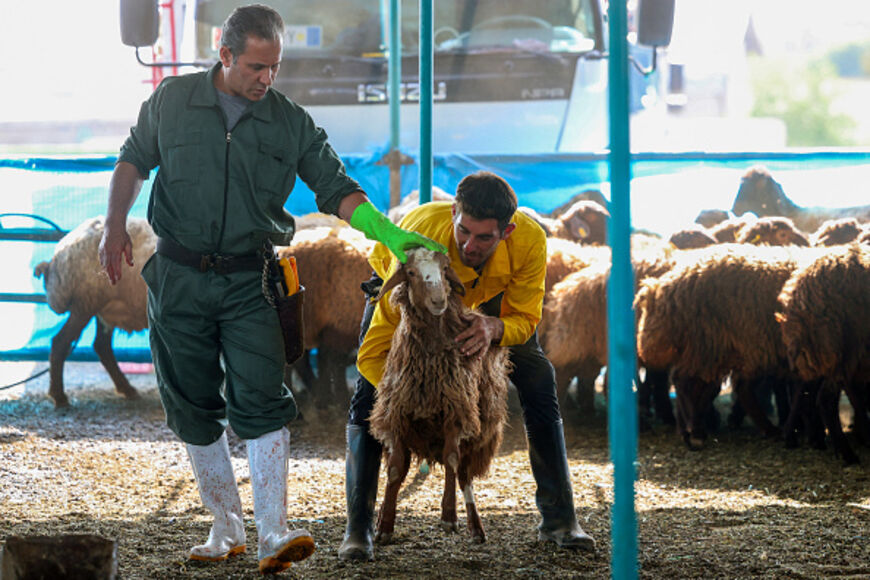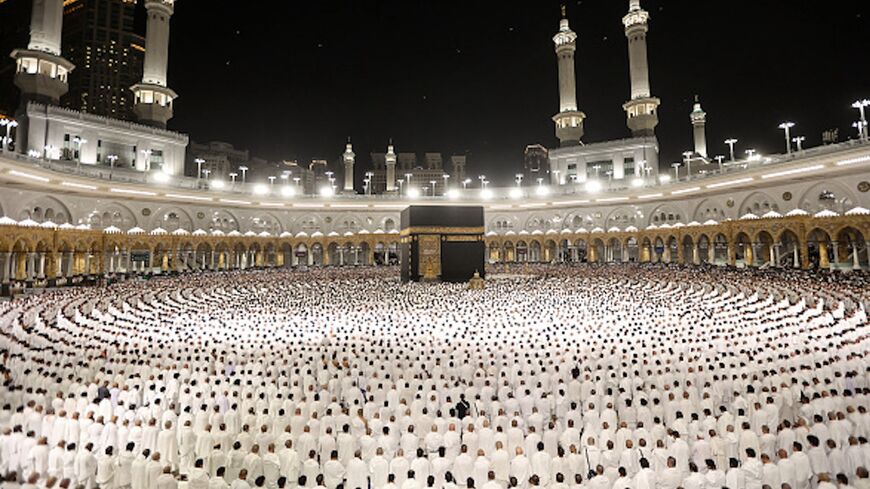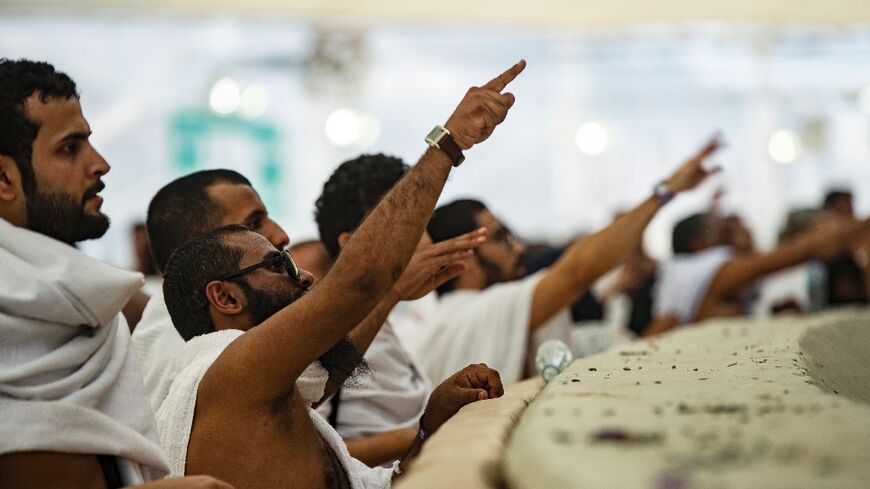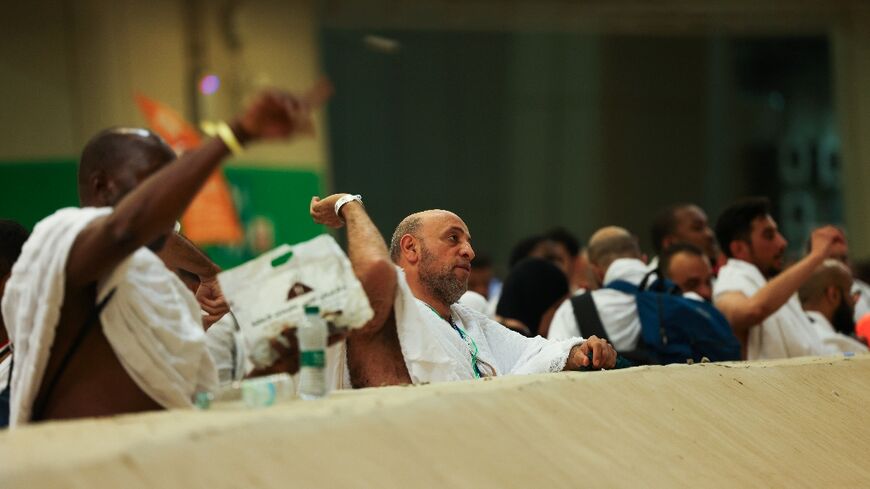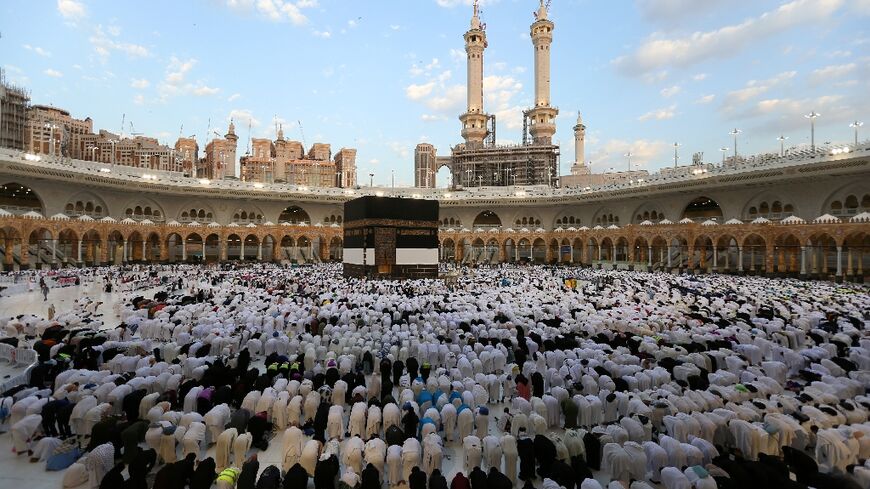In photos: Muslims kick off Eid al-Adha across the Middle East
The holiday’s arrival cast a spotlight on deepening humanitarian crises, leadership transitions and shifting regional dynamics.
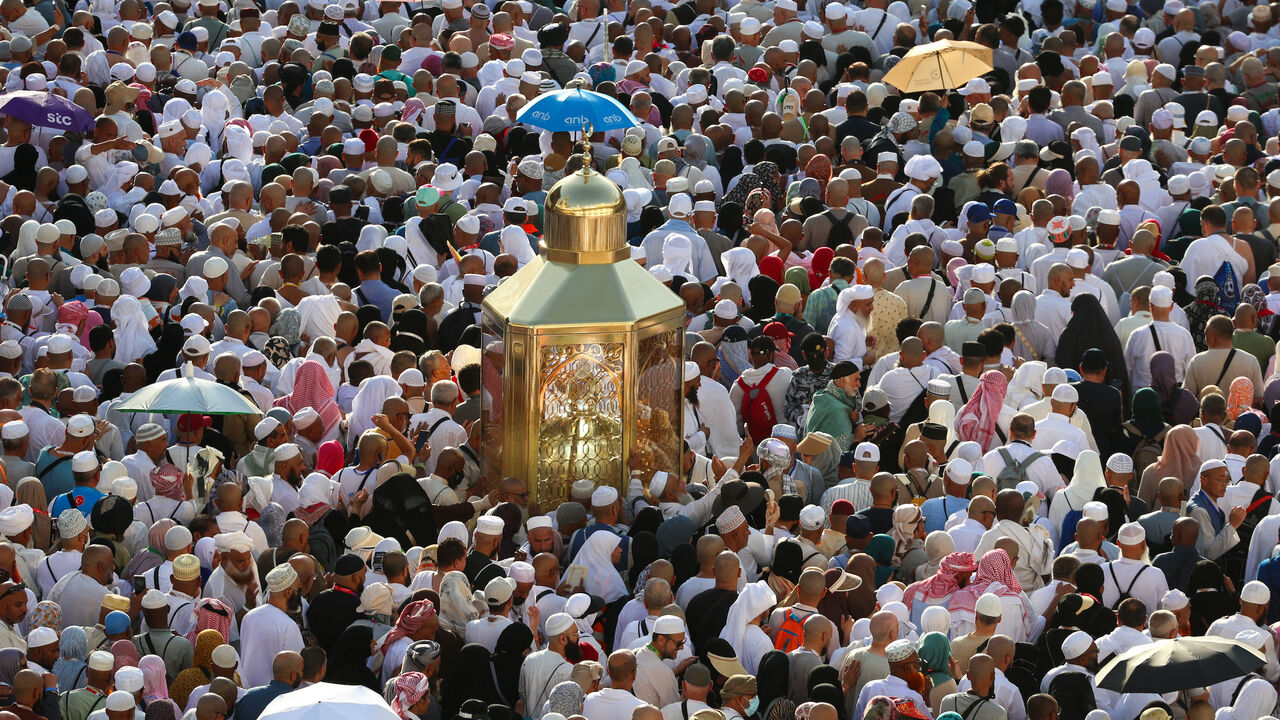
Eid al-Adha, or the Feast of Sacrifice, is one of the most significant holidays on the Islamic calendar. It commemorates the Prophet Ibrahim's (or Abraham's) willingness to sacrifice his son in obedience to God. The holiday is marked by special prayers, family gatherings, charitable giving and the sacrifice of livestock.
The celebration always falls on the 10th day of Dhul Hijjah, the final month of the Islamic calendar. This year, Saudi authorities announced that Eid al-Adha would begin at sunset on June 5. Muslims not performing the Hajj pilgrimage typically begin celebrations the following day, June 6. The exact start date can vary slightly depending on the moon sighting in different countries.
Lebanon, Gaza, the West Bank, Syria, Jordan and Iraq
For Lebanon, the holiday began just hours after an Israeli military strike on the southern suburbs of Beirut on Thursday, which the Israeli military said targeted facilities used by Hezbollah “for the production and storage” of drones. There have been no reports of casualties. Photos of the aftermath show rubble and smoke in residential neighborhoods.
Men hold a ladder for a man attempting to repair a cable by the rubble of a collapsed building, at the site of an overnight Israeli airstrike in the Hadath neighborhood of Beirut's southern suburbs, on June 6, 2025. (Photo by IBRAHIM AMRO/AFP via Getty Images)
In Gaza, Eid al-Adha unfolds under the shadow of a deepening humanitarian crisis. Since late May, aid distribution centers operated by the US- and Israel-backed Gaza Humanitarian Foundation have been scenes of deadly chaos. Crowds of Palestinians seeking food have been met with gunfire, resulting in over 100 deaths and hundreds of injuries, according to Gaza’s Government Media Office.
The Israeli military claims that it fired warning shots at individuals approaching its forces and has dismissed reports of the incidents as “exaggerated.”
Muslim worshippers attend the early morning prayers for Eid al-Adha in the makeshift prayer room of Nour Mosque, in the Abu Amin neighborhood in northeastern Gaza City, on June 6, 2025. (Photo by BASHAR TALEB/AFP via Getty Images)
Meanwhile, in the occupied West Bank, tens of thousands of Palestinians gathered at Al-Aqsa Mosque in East Jerusalem. Palestinian news agency WAFA reported that Israeli forces “imposed tightened restrictions and maintained a heavy security presence at the compound’s gates.”
Muslims perform a special morning prayer on the first day of the Eid al-Adha festival, which marks the end of the Hajj pilgrimage to Mecca, at the Al-Aqsa Mosque compound in Jerusalem's Old City, on June 6, 2025. (Photo by AHMAD GHARABLI/AFP via Getty Images)
For Syrians, this marks the first Eid al-Adha in decades out from under the rule of Bashar al-Assad, who was toppled in December.
A man prays with a gun at his feet in Umayyad Mosque, in central Damascus, before midday Friday prayers during Eid, on June 6, 2025, in Damascus, Syria. (Photo by Ed Ram/Getty Images)
Syria's interim president, Ahmed al-Sharaa, performed Eid al-Adha prayers at the People’s Palace in Damascus alongside Grand Mufti of Syria Sheikh Osama Al-Rifai.
In Jordan, the government declared a five-day public holiday, from June 5 to June 9. Thousands gathered in open-air prayer spaces at mosques across the country. Jordan, which is home to over 1.4 million Syrian refugees, saw some Syrians prepare to leave and return to Syria ahead of the holiday.
Syrian refugees load a car with belongings as they prepare to move from the Jordan-Emirati camp in Azraq, east of Amman, on their way back to Daraa, in southern Syria, on June 3, 2025, ahead of the Eid al-Adha holiday. (Photo by KHALIL MAZRAAWI/AFP via Getty Images)
In Iraq, thousands gathered to worship at the country’s holy sites, including Imam Ali Shrine in Najaf, Imam Hussain Shrine and Al-Abbas Shrine in Karbala, and Al-Kadhimiya Mosque in Baghdad, among others.
Muslims arrive to participate in a special morning prayer to mark the start of the Eid al-Adha festival in Baghdad, at the shrine of 12th-century Sunni cleric Abdul Qadir al-Jilani, on June 6, 2025. (Photo by MURTAJA LATEEF/AFP via Getty Images)
In Iraqi Kurdistan, President Masoud Barzani welcomed the holiday while also taking a moment to condemn an ongoing salary crisis, in which the Iraqi government has suspended the salaries of Kurdistan’s public employees during Eid al-Adha. “The will of the Kurdish people is stronger than any oppression,” Barzani said.
As part of an enduring cultural and Islamic tradition, local residents in Erbil, Iraq, visit the graves of their loved ones at Sayid Ma'roof Cemetery, on Thursday, June 5, 2025. (Photo by OMAR KARIM/Middle East Images/AFP via Getty Images)
North Africa
In Egypt, large crowds assembled at mosques and designated prayer grounds before dawn on Friday. Under financial strain, some Egyptians are reportedly opting for camels as their sacrificial animals, turning away from the more common and pricier sheep and cattle.
Muslim worshippers perform the early morning prayers for Eid al-Adha near the ancient Egyptian Abusir necropolis in the village of Abusir, in southern Giza province, on June 6, 2025. (Photo by MAHMOUD EL-KHAWAS/AFP via Getty Images)
Morocco is also shifting away from traditional rituals this year. Economic woes and a prolonged drought prompted King Mohammed VI to issue a rare directive encouraging citizens to refrain from animal sacrifice this year.
In his directive, King Mohammed emphasized “the duty to consider the climatic and economic challenges facing our country, which have led to a significant decline in livestock numbers.”
Women shop for fruit amidst preparations ahead of Eid al-Adha at the weekly market in Khemisset, in the Rabat region, about 100 kilometers east of the Moroccan capital, on June 3, 2025.(Photo by ABDEL MAJID BZIOUAT/AFP via Getty Images)
In Sudan, Eid al-Adha is being observed amid a devastating civil war that has displaced over 13 million people and left nearly half the population facing extreme levels of hunger, according to the World Food Program. Despite the hardships, many Sudanese families are striving to maintain the spirit of the holiday. In an interview with Islamic Relief, one mother called the holiday “a break from the adversities of life." She added, "It is a time for family, laughs and joy. I have missed this feeling over the last two years."
Muslim worshippers attend the sermon after the early morning prayers for Eid al-Adha in Ashishi island, in the Meroe district of northern Sudan, on June 6, 2025. (Photo by AFP via Getty Images)
Gulf
Saudi Arabia, which is home to Islam’s holiest sites — including Mecca, where the annual Hajj pilgrimage takes place — plays a central role during Eid al-Adha. The Hajj, one of the five pillars of Islam, is a pilgrimage to the city of Mecca. It culminates in the Eid al-Adha holiday, and millions of pilgrims gather in Mecca each year to perform the rites.
Muslims participate in a special morning prayer around the Kaaba, Islam's holiest shrine, at the Grand Mosque complex in Mecca, on June 6, 2025, to mark the start of the Eid al-Adha festival, which marks the end of their Hajj pilgrimage. (Photo by AFP via Getty Images)
Over 1 million pilgrims have traveled to Saudi Arabia for the Hajj this year.
Muslims pray around the Kaaba in Mecca, early on June 6, 2025. (Photo by AFP via Getty Images)
In Qatar, Eid al-Adha festivities commenced on Friday, with thousands gathering for early morning prayers at venues like Education City Stadium and Asian Town Cricket Stadium. The Ministry of Interior organized celebrations featuring cultural performances, musical shows and other activities across various locations, including Al Khor and Doha's Industrial Area.
A large sign reads "Eid Mubarak" in Arabic at a mall in Doha ahead of Eid al-Adha, on June 4, 2025. (Photo by KARIM JAAFAR/AFP via Getty Images)
Iran
In Iran, thousands gathered for prayers both in the capital, Tehran, and in Iran’s holy city of Mashhad, where Muslims worshipped at the shrine of the eighth Shiite imam, Imam Reza.
Men prepare to weigh a sheep for a customer at a livestock market on the first day of the Muslim Eid al-Adha festival in Tehran, on June 6, 2025. (Photo by AFP via Getty Images)
On Thursday, Iranian President Masoud Pezeshkian held a phone call with Saudi Crown Prince Mohammed bin Salman, according to the Saudi Press Agency, where the two exchanged Eid greetings.
